Evo Morales and Rafael Correa just had their candidacies for senator and vice-president banned by the respective judicial systems on the same day (9-7-2020). However, both former presidents have great support in their countries. The political leaders changed the face of their countries and societies, spearheaded the fight against poverty, brought millions of people out of hunger and set their nations on a trajectory of sovereignty. They are now political asylees in Argentina and Belgium respectively. If either dares to return to their respective countries, someone will undoubtedly issue an arrest warrant. How is it possible that two of the most prominent leaders of the last decades in Latin America are being persecuted in such a manner?
Estamos conscientes de que por presiones internas e imposiciones externas decididieron inhabilitar mi candidatura. Asumimos los costos de nuestra lucha por el pueblo. Seguiremos en el camino pacífico y democrático de la liberación de nuestra querida #Bolivia. pic.twitter.com/1ffzkbx6Y5
— Evo Morales Ayma (@evoespueblo) September 9, 2020
Morales and Correa were outlawed. The final court rulings exposed a strategic articulation with crystal clear objectives: to weaken the popular forces, not allow them to win any elections or constitute independent governments, erode them, and even destroy them if necessary. These cases represent the most recent chapter in a real judicial war, so-called ‘law-fare’: a form of political confrontation led by local elites, judicial systems and the mass media along with the external interference. This is a deeply rooted instrument in the fight against popular and left-wing legacy, forces and governments. At the same time, it is a process that is accumulating weight on the conservative, neoliberal and reactionary pole.
Conflictive social dynamics manifest in the formation of these two poles, two political-social-cultural camps made up of clearly distinguishable elements in terms of social profiles, ideologies, experiences, discourses and aesthetics. This process has been reproduced time and time again throughout the region, since the beginning of the 20th century at least, and continues unfettered. As a part of that same process, the US is deploying intensive interference and imperialist strategies with continental reach. As we know, Washington considers Latin America its backyard.
Morales and Correa´s cases are the most recent example of this judicial war, the clearest expression of the confrontation between two social forces. Tensions are rising, and anything could happen. Let’s take a look at the cases of Bolivia and Ecuador, but also the cases of Brazil and Argentina. What happens in these countries could determine what happens throughout the continent.
BRAZIL
Lula Da Silva, who had led workers’ strikes against the Brazilian dictatorship in the 1980s and governed the country from 2002 to 2011 with an anti-neoliberal presidency in close alliance with Hugo Chávez, was recently sent to prison for 580 days and freed only in November 2019. He was convicted on corruption charges. The special prosecutor Sergio Moro (who will later become Minister of Justice in Jair Mesías Bolsonaro´s government) claimed that a private company gave Lula a luxury apartment as part of illegal exchanges. However, no link with Lula was proved, he had never been there, there was no contract signed, no property title, and no one linked to Lula owned that apartment. The only evidence was the testimony of one businessman, and this was sufficient to send Lula to jail. Dilma Rousseff had been overthrown in 2016 through another intricate and complex coup. Brazil’s lower house started impeachment proceedings against her, even though there was no crime to justify the decision. The ruling classes decided that the Workers Party (PT) should not govern anymore and found the methods to end Dilma´s government. Later on, to prevent the PT to return to power, Lula was prevented from being a candidate. He was stigmatized, persecuted, judged, condemned and sent to prison. Lula was thus out of the elections and Bolsonaro won the presidency.
Part 1 of Luiz Inácio Lula da Silva's, former president of Brazil, statement about Julian Assange directed towards global leaders and the media. #FreeAssange pic.twitter.com/1UtEhcPSVa
— Assange Defense (@DefenseAssange) September 22, 2020
BOLIVIA
Evo Morales has not only been banned as a candidate for senator for the next elections, he had to flee the country and now lingers in exile in Argentina after being overthrown in October 2019 in a hard coup after the electoral crisis. At those times rumors of election fraud arose. Morales was facing an intense dirty campaign of lies and false accusations. Hard-line opposition groups, having control over some very relevant regions of the country, took to the streets leading to several weeks of right-wing unrest and violence. The OAS regional block harassed the MAS government. Morales was forced to resign after senior army and police chiefs called on him to do so. Quickly, that regional block (Macri, Piñera, Duque, Bolsonaro, Lenin Moreno, Trump, even the self-proclaimed president of Venezuela Juan Guaidó, and of course, the OAS) backed the coup against Morales (his mandate was due to expire in January 2020), and recognized the Añez regime. Today, several of Morale´s top-level officials are in asylum outside Bolivia and others had been in asylum for almost a year at the Mexican Embassy in La Paz, charged for alleged terrorist crimes.
ECUADOR
Lenin Moreno reached the presidency as Correa’s party candidate (he also was Correa´s vice-president between 2007 and 2013, the Citizen´s Revolution foundation years). He won the 2016 elections against businessman Guillermo Lasso, a neoliberal candidate. As soon as Moreno took office, he made a 180-degree turn, betraying his own political and social base, confronted Correa unleashing a real process of economic and social revisions, allying himself with the economic establishment. Political persecution began as a “war against corruption”. In order to reinstall neoliberalism, Correa had to be totally removed. Former officials, assembly members and militants of the Alianza País (Correa´s party) were attacked, Jorge Glas –Lenin Moreno´s vice president, included. In April 2020, Correa was prosecuted and convicted by an Ecuadorian court in absence, among other 11 officials and 10 businessmen. The case was initiated by a journalistic complaint published one year before that. Prosecutors accused them of being part of a network to obtain resources from private companies to finance political campaigns in exchange for the granting of contracts with the State. The script looks familiar. There was no message, no order, no recording, no bribery, no concrete evidence. Either way Correa was convicted of allegedly receiving $6,000 and producing “psychic influence” over their officials –as the ruling says, by influencing them to commit crimes. This was the outcome, despite that there is solid evidence that shows that judges colluded with prosecutors to prepare the sentence (available at Justiciaamarrada.org). The former president was sentenced to 8 years in prison and 25 years of political disqualification. Naturally, he won’t be on the ballot ticket next February.
ARGENTINA
Businessman Mauricio Macri governed the country between 2015 and 2019. He implemented neoliberal policies, plunging the country into a deep economic and social crisis. In 2014, as part of the electoral struggle that would bring him to power, law-fare was conducted against Cristina Fernández de Kirchner (CFK) and other main political figures. She was accused by prosecutors, judges and journalists of having organized a cover-up for the terrorist attack on the Jewish mutual society AMIA at the CABA in 1994. There was no evidence. Only opinions catalyzed 24×7 by every mass media outland a true police novel within a judicial file, written by a prosecutor that reported to the US Embassy before informing the Argentine government, as demonstrated by Wikileaks. Later that year the aforementioned special prosecutor investigating the AMIA case was found dead in his bathroom. Cristina Fernandez also was accused of having him killed. Naturally, there was no evidence whatsoever, just mediatic narratives. That was the starting point for a wave of accusations, mass media operations alleging corruption. Many cases ended up in trials. Some of the accused went to prison and others are still in detention. Most of the cases are frozen if not extinguished, exhausted in their lie. However, the damage was done. The Peronist party lost some support, enough to lose some votes and an election against Macri in 2015. Later, he continued to promote the judicial war against Cristina Fernández but because of his disastrous government he lost the October 2019 presidential elections, while Peronism articulated itself in a high-impact maneuver, having CFK on the ticket as vice-president, turning into the main figure inside the National Congress.
OPEN SCENARIOS
Lula has already declared that he will run for the presidency in 2022. The PT looks like it is still alive and kicking. However, the day after Lula made that announcement and while appealing his conviction in another case, the prosecutors in Brazil’s sprawling so-called Car Wash corruption investigation charged him with money laundering. Meanwhile, under Bolsonaro´s government, the far right is on the rise in the country.
In Argentina, the global pandemic crisis unleashed new political dynamics (as soon as the Fernandez government started in December 2019). Macri himself just published an open letter saying that the Fernandez government is violating the Constitution, individual liberties and citizenship rights. A police rebellion promoted by expelled agents bloomed. Everything framed by constant and relevant political demonstrations by lumpen-bourgeoisie, conservatives, neo-fascists, oligarchies, middle classes, liberals and libertarians, catalyzed of course by the mass media. For the moment judicial war seems to be on pause. In any case it is to the credit of the government. But it is frozen, not dissolved.
In Bolivia the MAS has great chances of taking over the presidency again. Last Thursday, Añez announced that she was withdrawing her candidacy for the October 2020 presidential election, saying: “If we don´t join forces, Evo Morales will return to power”. Luis Arce, the presidential candidate (MAS) must get at least 40% of the votes plus 10 points ahead of the second candidate to get a win in first round. Even though recent polls show that Arce is in the lead, he still does not have the numbers. He may need to go through a second electoral round, this time, against a unified right-wing force, which could easily inherit the votes of most of the candidates who were left out of the competition. On the contrary, Arce will have a hard time obtaining new votes, in spite of having the highest level of support among indigenous and working-class people.
In Ecuador, elections will be in February 2022. Without Correa on the ballot, Andres Arauz, the Democratic Center’s presidential candidate, will be facing Lenin Moreno among other candidates. The situation may be analogous to that in 2016, before the betrayal, when Lenin Moreno won as a candidate for Alianza Pais. Correa’s party has a good chance of winning, even more when the results of 4 years of neoliberal policies can be seen on a daily basis. Either way, political persecution and stigmatization persists.
A WAVE THAT WON´T STOP
We are witnessing the most recent cycle of tension and struggle taking place in Latin America since the post Second World War. On the one hand, there is a camp composed of popular, national, native, liberation and revolutionary historical experiences forged by subaltern subjects. On the other hand, there is a camp made up of local elites, liberal, pro-Western sectors, oligarchies, economic and financial establishments, along with US imperial interference, which is managing to gather the support of middle classes and some fractions of the popular classes. This struggle took different forms over the years, with uneven results.
In the 50´s and 60´s, national and liberation movements consolidated, and in some cases, formed governments. The US deployed the National Security Doctrine (DSN), the Hemispheric Security in the time of Cold War and anticommunism, gave birth to the OAS, propitiated and financed military coups, indoctrinated military hierarchs at the School of the Americas. It was the time of the Cuban Revolution and the insurgent influence spread throughout the continent.
In the 70´s, Chilean socialism came to power through an electoral process. On September 11, 1973 a military coup took place and Salvador Allende was assassinated. The first neoliberal experience in the world was born: Low Intensity Conflict (LIC), a new form of counter-insurgency. The epicenter of the Latin American revolution was moving towards Central America. The Sandinistas seized power in January 1979. Because of the defeat in Vietnam and the large popular support that was sustaining revolutionary movements and governments, direct and open military coups and invasions lost legitimacy. Conflicts were outsourced (mercenaries and paramilitary groups, puppet governments, NGOs, democratically elected governments that respond to the US, counter-revolutionary movements), while psychological warfare and international pressure (which includes the economic and financial question) were intensified. This was the era of the Reagan Doctrine.
In the 80’s and the 90’s, neoliberalism was installed on a continental scale, consolidating a fierce hegemony, penetrating all spheres of life, weakening popular political instruments, dismantling the accumulated popular rights that had been conquered along decades, Countries were plunged into poverty at the hands of their own governments. Towards the end of the 1990s, one of the most luminous experiences of the Latin American peoples began to consolidate. Popular and progressive governments led an exceptional process of integration from 1998 till 2014-2015. At the same time, imperial aggression increased and developed symmetrically.
Chavez, who assumed his government in 1999, faced coup d’état in 2002, reversed by a massive popular reaction that not only rescued him from a firing squad, but also laid the foundation for an experience that is still alive, the unity of the people, the government and the military forces in defense of democracy. In 2008, only two years after taking in office, Evo Morales faced an attempt at secession by the same sectors and regions that colluded behind the 2019 coup and the Añez government. Correa, who assumed his first presidential term in 2007, faced an attempted coup in 2010, starred by police forces. Destabilizing attempts have been taking place in Argentina since 2008. Honduras President Manuel Zelaya was overthrown by a military coup in 2009. Special forces stormed his residence and flew him to Costa Rica under a Supreme Court order. He was trying to introduce land redistribution reforms and a change in the county’s constitution. Fernando Lugo, president of Paraguay, was ousted from office after being impeached by the country’s Congress, pointed out as responsible for the deaths during a land rights dispute during a standoff between police and landless peasants.
By 2014, much of the continent was back in the hands of neoliberal governments. The judicial war was a key component in achieving that goal. That process triggered a conservative and reactionary beltway. In the midst of the pandemic phase of the global crisis the reconstruction of popular independent projects is latent and might lead to a new process of integration bringing with it an anti-capitalist drift, precisely something that the regional elites have been fighting relentlessly together with the US-backed interference. While imperialism keeps exhibiting declining signs, the economic and geopolitical importance of main global actors such as China and Russia is rising.
Popular and revolutionary experiences have been taken place in Latin America for a long time, as Ernesto Guevara stated in his speech to the United Nations on December 11, 1964, despite imperialist fantasies:
“The wave of anger, of demands for justice, of claims for rights trampled underfoot, which is beginning to sweep the lands of Latin America, will not stop. That wave will swell with every passing day. For that wave is composed of the greatest number, the majorities in every respect, those whose labor amasses the wealth and turns the wheels of history.”
Our America is alive, but it needs new leaderships and governments prone to the liberation of social forces, fearless of what may come, as well as more critical thinking, to achieve a definitive decolonization, based on the accumulated experience of local peoples and political cultures.







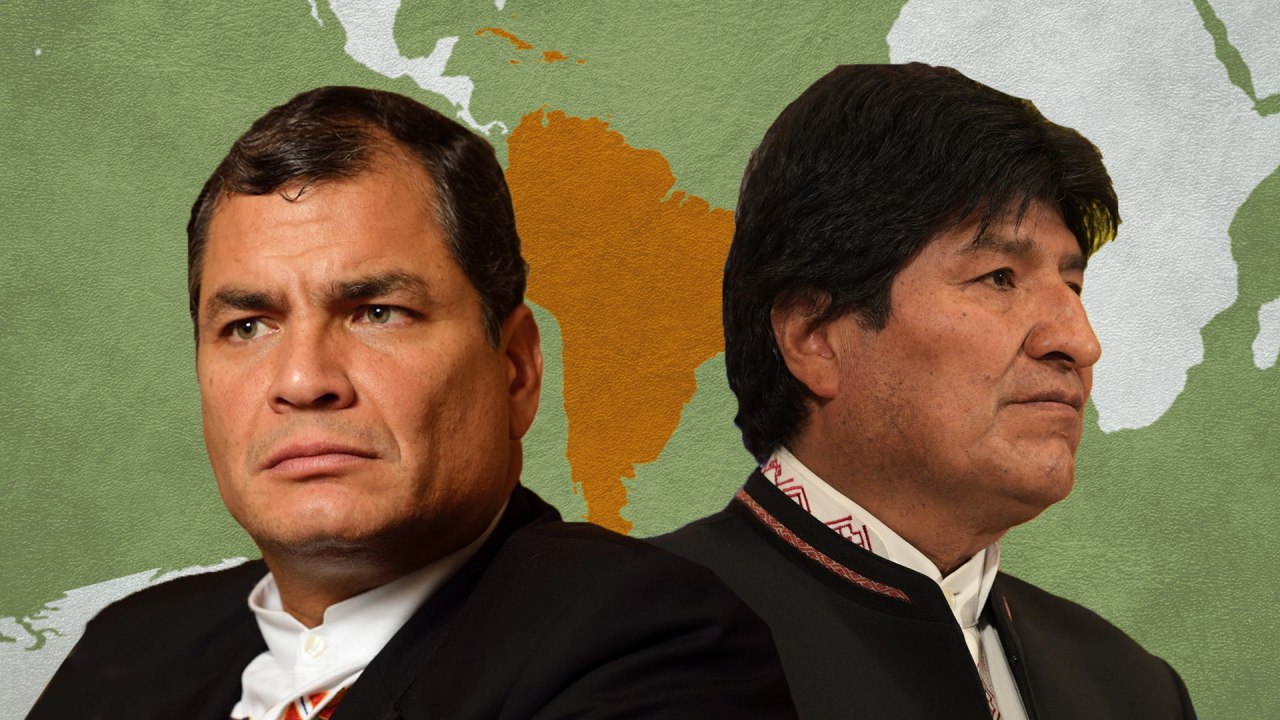

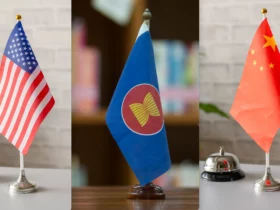
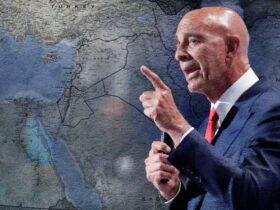
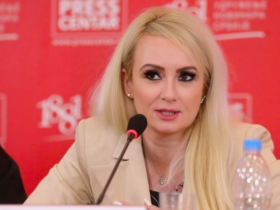
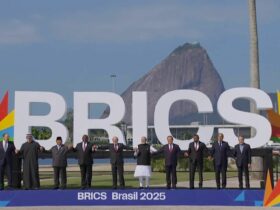


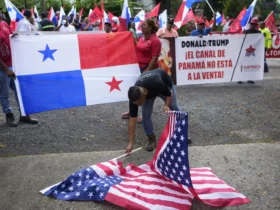

Leave a Reply